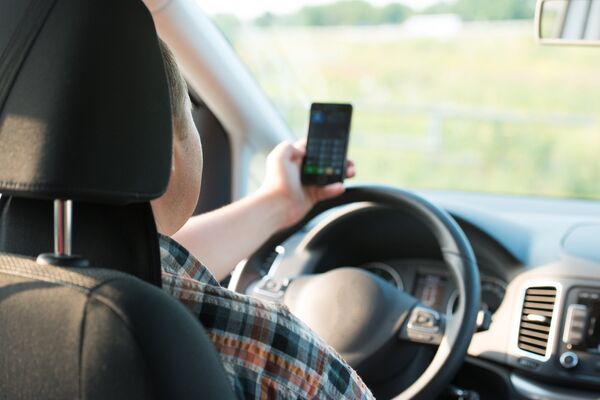MOSCOW, September 26 (Kristen Blyth, RIA Novosti) – Happen to walk by a bloody crime scene or a particularly gruesome car accident? Want to take a picture of it and sell the photo to the tabloids for big bucks?
It probably won’t surprise you to hear that there’s now an app for that.
LifeNews, a Russian web tabloid known for its uncanny ability to seemingly always be in the right place at the right time and get a hold of even the most unlikely, private or hard-to-find photos, debuted a new app on Tuesday that caters to the inner photojournalist (or money-driven opportunist) of anyone with a smartphone.
Here’s how it works: Users who witness a news-notable event – whether it be the recent floods in Sochi (future site of the 2014 Winter Olympic Games) or the lead singer of the US music group Bloodhound Gang stuffing a Russian flag down his pants in concert – can take a photo or record a video of the action and upload it to LifeNews via the app.
The tabloid’s staff verifies the materials’ authenticity, and then rewards the contributor – who can elect to remain anonymous – with cash deposited directly onto their mobile phone account.
Payment starts from 100 rubles ($3), for a picture of a car with government license plates parked illegally, for example, all the way to – well, there’s no ceiling, LifeNews spokeswoman Yevgenia Vintovkina told RIA Novosti. “We decide how much to pay based on the material, but there is no fixed maximum sum,” she said.
The most important thing, Vintovkina added, is uniqueness. “We only buy exclusive material,” she said.
Payment of up to 15,000 rubles ($465) will be deposited on the user’s mobile account; larger sums, Vintovkina said, can be delivered by mail or deposited in a bank account.
Once the photo or video is verified by the LifeNews team, it’s posted to the news website and also to a rolling timeline within the app where users can scroll through recent and popular material, much like on YouTube. Videos of the Sochi floods and the Bloodhound Gang flag incident, for the record, were both featured in the recent timeline – earning their contributors 1,000 rubles ($30) each, according to the app.
The idea’s not completely unique. As smartphone technology has become more advanced, applications to crowdsource everything from fundraising to crime mapping have popped up around the world. A police app in Texas, for example, lets the public leave the cops anonymous tips on local crimes.
The LifeNews app is original, however, in the way it geotargets news stories. Using mobile GPS, the tabloid can push SMS-notifications to users about potential photo opportunities in their area.
It also advertises particularly desirable stories – the veritable “big fish” headline – by posting specific assignments on the app’s homepage.
On Thursday, for example, Russian tabloid Moskovsky Komsomolets published a story claiming that a plane packed with 20 billion euros – of unknown ownership – has been stuck in Moscow’s Sheremetyevo Airport for years. LifeNews, in response, put up a task on its app offering 100,000 rubles ($3,000) for a video of the mysterious plane, including footage of its interior.
Sensationalist journalism, nourished by lurid headlines and morbid material, has long encouraged consumer initiative in submitting material.
Vintovkina said that LifeNews has been paying people for tips and photos, mainly sent by email, since the tabloid opened in 2008. Now, the company has made a technological leap to crowdsourcing news material from anyone with iOS or Android, regardless of their location.
Over 3,000 people downloaded the app Tuesday, the day of its release, Vintovkina told RIA Novosti. After two days, she says, it’s reached over 8,500 downloads – and LifeNews hasn’t even begun its advertising campaign, which is slated to hit the Internet and radio on October 1.




